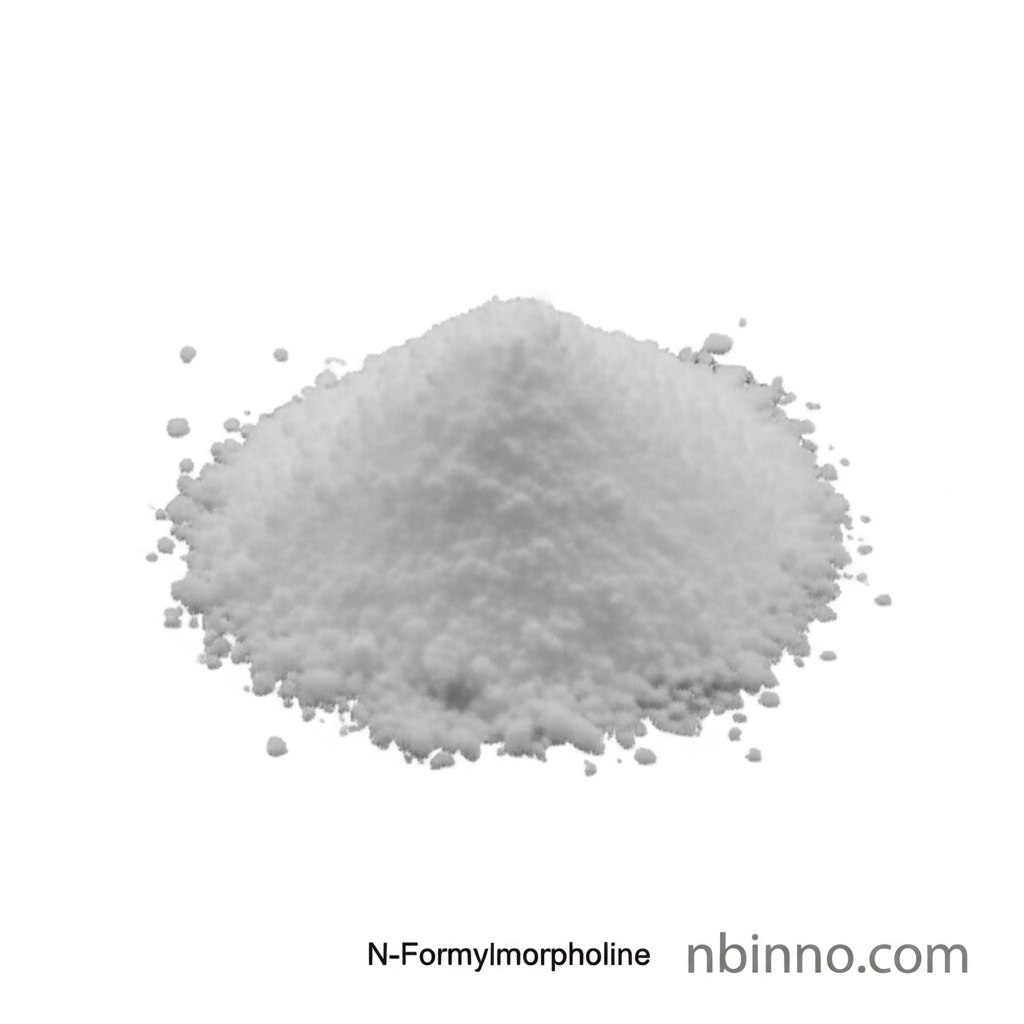N-Formylmorpholine: A Versatile Organic Intermediate
Explore the properties and applications of N-Formylmorpholine, a key compound in modern chemistry.
Get a Quote & SampleProduct Core Value

N-Formylmorpholine
N-Formylmorpholine (CAS 4394-85-8) is a crucial organic compound recognized for its exceptional properties as a high-temperature solvent and an effective formylating agent. Its chemical structure, C5H9NO2, and molecular weight of 115.132 g/mol, contribute to its unique functionality in various chemical processes. With a melting point of 21 °C and a boiling point of 239 °C, it offers stability and efficacy in demanding environments.
- Discover the versatility of N-Formylmorpholine as a key intermediate in organic synthesis, enabling the creation of complex molecules.
- Leverage N-Formylmorpholine CAS 4394-85-8 properties for your high-temperature solvent needs, ensuring reliable performance.
- Understand why researchers buy N-Formylmorpholine online for its role in pharmaceutical synthesis and the development of advanced materials.
- Explore the diverse N-Formylmorpholine solvent applications across industries, from pharmaceuticals to polymer chemistry.
Key Advantages
Enhanced Solubility
The unique structure of the formyl morpholine chemical compound provides excellent solvency for a wide range of organic and inorganic substances.
Effective Formylation
As a potent formylating agent, it is instrumental in introducing the formyl group in organic reactions, vital for N-Formylmorpholine pharmaceutical intermediate synthesis.
Thermal Stability
Its high boiling point and thermal stability make it suitable for processes requiring elevated temperatures, a critical factor when working with complex synthesis pathways.
Key Applications
Pharmaceutical Synthesis
Serves as a critical building block and intermediate in the synthesis of various pharmaceutical compounds, including those for neurological disorders.
Organic Synthesis
A versatile reagent used in organic chemistry for creating more complex molecules and for introducing functional groups. Explore N-Formylmorpholine synthesis intermediate capabilities.
Polymer Chemistry
Can be incorporated into polymer formulations to enhance properties like solubility and stability, contributing to the development of specialty polymers.
Analytical Chemistry
Employed in the development of analytical methods, such as chromatography, for the detection and quantification of various substances.
